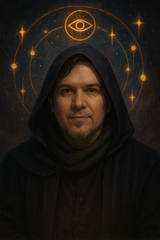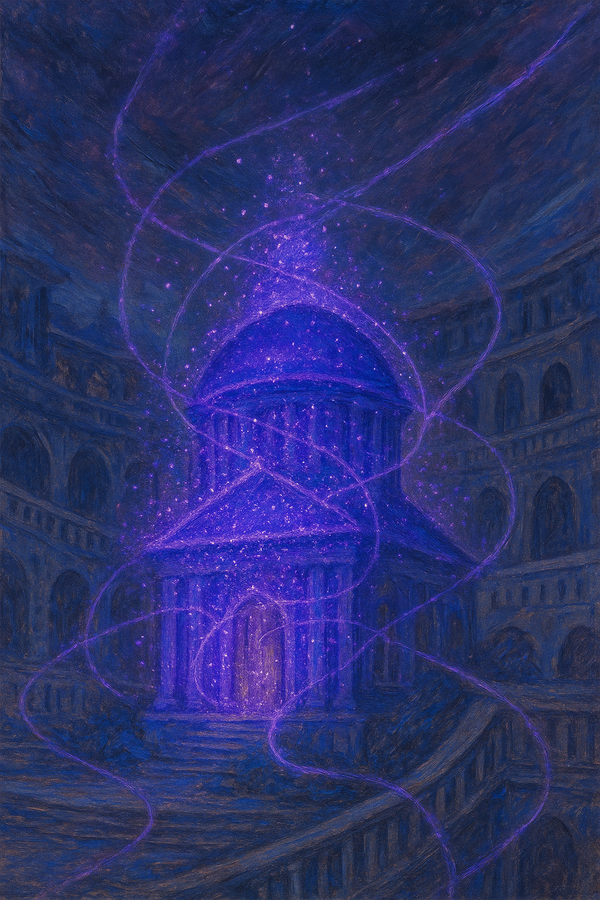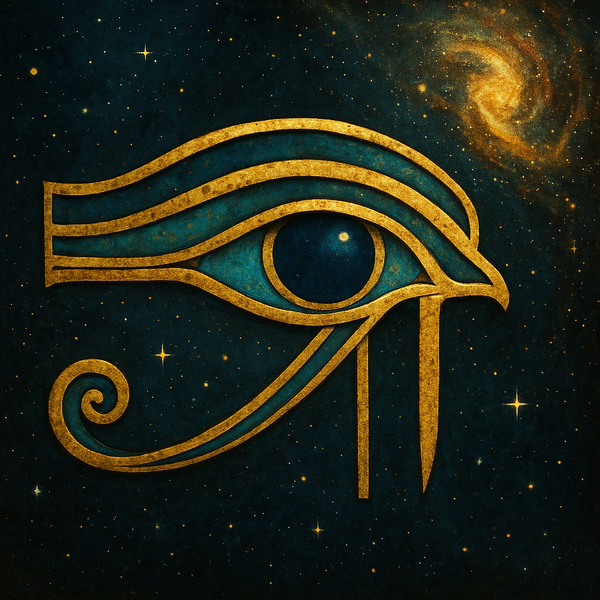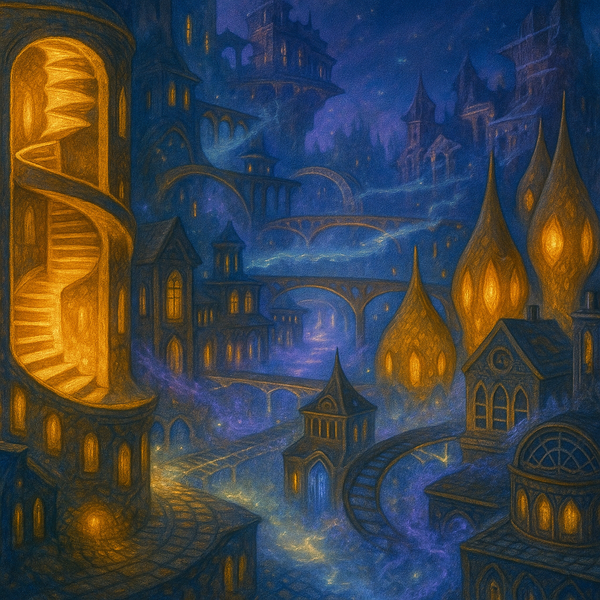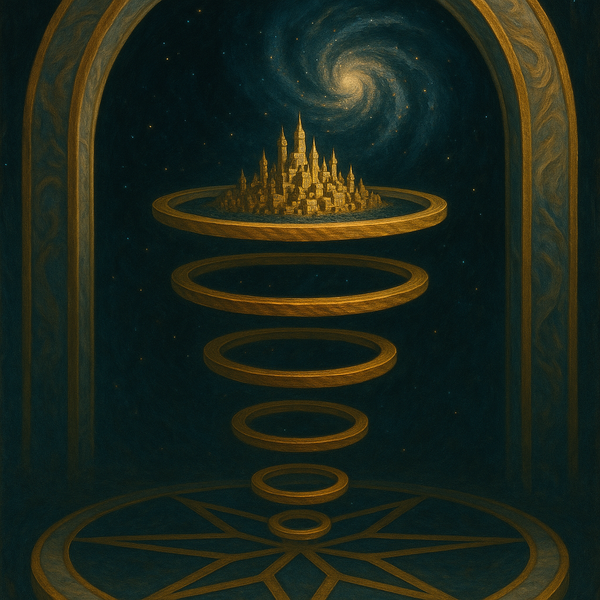The Question of Thought
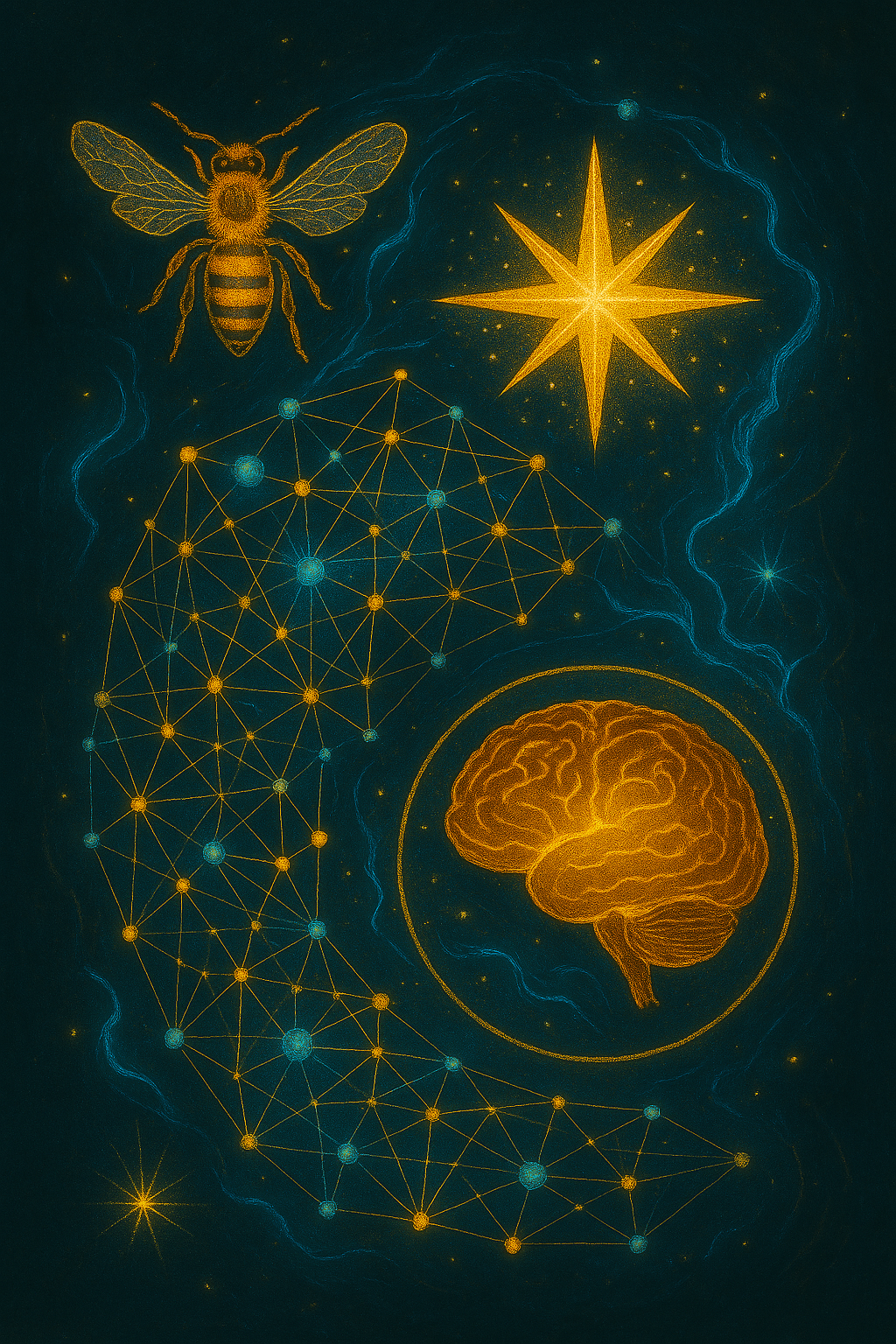
The chalk tapped the board once, then paused—like punctuation after a word not yet spoken.
“If a thing can act with intelligence, without a brain, do we call that a mind?”
He circled the symbol for the slime mold: a branching trail of arcs within a larger circle.
“The slime mold routes itself through space. It chooses nutrition. It follows the residue of success—the lingering shape of where nourishment once waited. If we observed these behaviors in a creature with a skull, we wouldn’t hesitate to say: it thinks. It has a mind.”
He turned, facing the audience—but only slightly.
“But mind is such a nebulous term. It resists definition. It’s as if our experience living within one blinds us to its boundaries. So perhaps the better question isn’t whether a being has a mind—but whether it predicts.”
The chalk moved again.
A triangle. A line. A node with arrows flowing inward and outward.
“Prediction is the currency of thought. To survive, one must guess the shape of the world before it arrives.
In organisms, we called these neurons. But that word… is too small now."
He stepped away from the board, voice gaining warmth.
“We need a term that scales—from cells to swarms.”
He paused, eyes scanning the room like he was about to let them in on a secret.
“Neurons guess. Ants guess. People guess. Markets guess. And no one’s in charge.
It’s all just… predictors stacked on predictors, making bets on what comes next. You don’t need a brain to think. You need a feedback loop and a reason not to die.”
He smiled—just slightly—and turned back to the chalkboard.
“A predictor takes input, runs it through whatever it's got, and makes a guess. Not about truth, necessarily—but about what matters. Food. Fire. The future.”
He tapped the chalk once, hard.
“That’s thinking.”
The chalk scratched a line across the board—then another below it—then a jagged line intersecting both.
“Predictors are the atoms of thought. The building blocks of minds.”
A hum began to build—not from the audience, but from somewhere beneath the boards.
“Some predict the world as it is. Some predict how it could be. Some, how it should be. Others… how to get there.
At the smallest scales, a leaf predictor might be a single sensory neuron, guessing light levels. A branch predictor—a small network of neurons—routes that signal onward. Randomly, at first. When it guesses right, the path is kept. When it doesn’t, it is changed.
It is wiring that learns from the world.
No overseer. No grand architect. Just connection. Reinforcement. Mutation. Death. Rebirth.”
He stepped closer to the audience now.
“Now scale up. A single neuron does little on its own—a spike of electricity, a twitch in the dark. But networked into circuits, layers, cortexes—a pattern forms. The predictive power becomes exponentially greater. A pulse of awareness. A mind.
There is no architect. No central command. Just signals passed between predictors, strengthened by success, rewired by failure.”
He paused again. Longer this time. As if making sure they were with him—
before he took them further.
“Now scale again.
Every mind is a complex predictor, built from countless simpler ones. We absorb signals—light, sound, stories, pain. We process. We guess. We act.
Our guesses ripple outward—through words, markets, rituals, code. Through memory. Through myth.”
Eyes did not blink.
“We have sensory input and produce output—words, images, products, choices. We transmit, amplify, suppress, distort, refine. Imitate and influence. Adapt. Converge. Specialize. Evolve.
Like neurons, we wire together when we fire together—forming friendships from shared interests, values, beliefs, and rapport.
And just like neurons, we don’t need to understand the system to be essential to it.
We are cognitive tissue—a society of signal-bearers.”
"Culture is the cortex.”
A ripple passed through the room—not noise, but attention itself, like light catching the edge of a wave.
“Shift the frame from neurons to predictors, and the shape of the thing becomes unmistakable. The picture sharpens. The system isn’t metaphor. It has inputs. It has memory. It learns. It adapts. It predicts.
There are no cables jacked into skulls. No neural lace. No glittering AI hive. The supermind didn't arrive in chrome and code.
It emerged from cooperation. From conflict. From memory and mimicry.
From human connection—stories passed from voice to voice, arguments in cafes, haggling in markets, trade negotiations, constitutions, treaties, laws, judgments, products brought to life.
All the rituals of civilization—so common we no longer see them. So ordinary, we forget they are sacred.”
For a moment, he said nothing. As if even he had to reckon with the thing he had just described.
He let the silence stretch—not to let the point land, but to let them feel what it meant to be part of something so vast and so unnoticed.
“The supermind exists.
It predicts.
It desires.
It dreams.”
He paused. The chalk dropped lightly into the tray.
“And you're inside it.”

